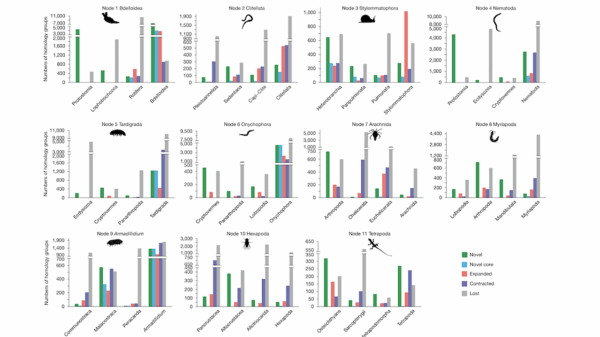Researchers at the University of Missouri are working to improve the flavor profile of soybeans, a staple in Asian diets for centuries. Despite their rich nutritional content and health benefits, soy products often encounter resistance among Western consumers due to their distinct “beany” taste. Many perceive this flavor as grassy and overly earthy, which has limited the acceptance of soy foods in Western cuisine.
The initiative aims to bridge this flavor gap, making soy more appealing to a broader audience. Soybeans are highly nutritious, containing all the essential amino acids typically found in animal protein. This characteristic positions them as a powerful alternative for those seeking plant-based diets. Yet, the taste remains a significant barrier.
Understanding the Flavor Challenge
The perception of soy products in Western countries contrasts sharply with their acceptance in Asia, where soy has been celebrated for its versatility and health benefits. While Asian culinary traditions often incorporate soy in various forms—such as tofu, soy sauce, and tempeh—Western consumers have not embraced these foods to the same extent.
Dr. Sharon D. K. B. Smith, a researcher involved in the project, emphasizes the importance of flavor in food acceptance. “Taste is a critical factor when it comes to food choices,” she states. “If we can enhance the flavor of soybeans, we can potentially open up a new market for these nutritious foods.”
The research team is exploring various methods to modify the flavor compounds in soybeans. By identifying the specific elements that contribute to the less desirable taste, they aim to develop soy varieties that are more palatable without compromising their nutritional value.
Potential Impacts on Health and Agriculture
Successful flavor enhancement could have significant implications for both health and agriculture. A greater acceptance of soy could lead to increased consumption of plant-based proteins, which are often lower in saturated fats compared to animal proteins. This shift could contribute positively to public health, particularly in regions grappling with rising obesity and related health issues.
Moreover, enhancing soy flavor may boost agricultural outputs. As demand for plant-based foods rises globally, farmers may see a greater market for soybeans. The research aligns with broader trends towards sustainable agriculture and food production, which is critical in addressing climate change and ensuring food security.
The project is currently in the experimental stages, with results expected in the coming years. The team at the University of Missouri is optimistic about the potential to revolutionize the way soy is perceived and utilized in Western diets. Their efforts could ultimately reshape dietary norms, making soy a more common ingredient on dinner tables across the globe.
As research progresses, the implications extend beyond just taste. By enhancing the appeal of soybeans, scientists aim to contribute to healthier eating habits and a more sustainable food system, addressing both individual health and environmental concerns.



































































